Armed with over 30 years’ experience in developing solutions for Africa’s agricultural industry and with a solid understanding of the challenges and opportunities it faces, Mike Ogg, Head of Africa and the Middle East for the global sustainable sugarcane platform Bonsucro, tells us about his commitment to developing the continent’s sugar industry to transform the lives of people and communities.
Q&A WITH MIKE OGG, HEAD OF AFRICA AND THE MIDDLE EAST, BONSUCRO
Firstly, could you provide us with some insight into your career to date and explain how you became involved in various large agricultural infrastructure projects across Africa?
Mike Ogg, Head of Africa and the Middle East (MO): My career has been shaped by a deep interest in sustainability and rural development. I started out working on a number of large-scale rural development projects in Southern Africa, where I saw first-hand how climate variability and land degradation were impacting rural livelihoods.
That experience led me into broader agricultural development, where I could help bridge development objectives with economic opportunity for smallholder farmers and agri-businesses.
Over the years, I’ve worked on a range of agricultural infrastructure projects, from irrigation schemes and smallholder outgrower models to climate-smart farming systems and market access platforms.
My work has taken me across East and Southern Africa, often operating at the intersection of public policy, private investment, and community engagement.
What I’ve learned is that infrastructure in agriculture is not just about physical assets – it’s about building systems of trust, resilience, and inclusive growth. Importantly, it’s about growing people and communities to ensure resilience.
I became involved with Bonsucro because I saw a clear opportunity to drive sustainable change at scale through a recognised platform that combines credible certification with practical tools, robust data, and multi-stakeholder collaboration.
My role is to support African producers and stakeholders to align with global sustainability standards, unlock new market opportunities, and prepare for the environmental and social challenges ahead.
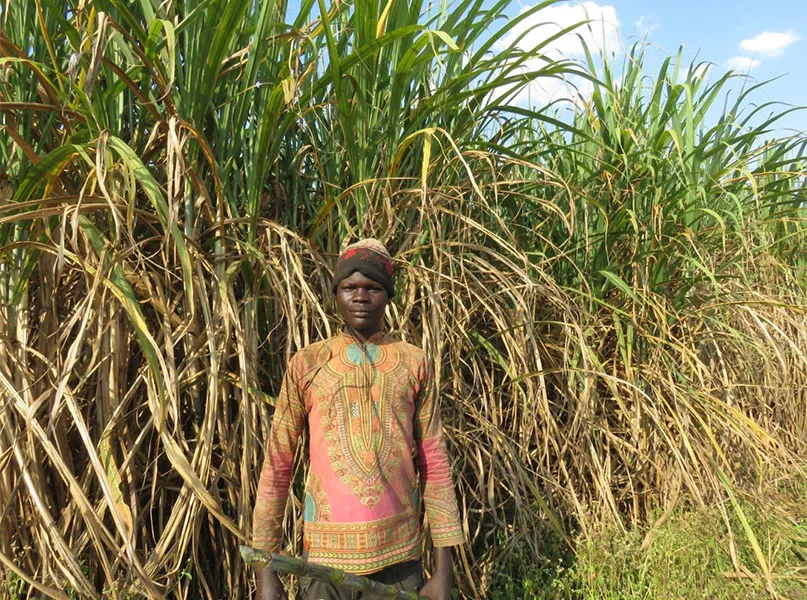
What is your take on Africa’s sugarcane industry today? How have you seen it evolve over the years and what recent challenges or opportunities have you encountered?
MO: The African sugarcane industry is growing and has the right ingredients to thrive – both in terms of its natural resources and improving infrastructure.
Over the past two decades, Africa’s sugarcane sector has undergone significant transformation. Whilst still concentrated in countries like South Africa (SA), Eswatini, Mauritius, Egypt, Kenya, Zambia, and Sudan, regional production has grown through modernisation, improved irrigation, and the adoption of high-yield crop varieties.
SA, for example, consistently produces around 18 to 20 million tonnes of cane annually, supported by both commercial estates and smallholder outgrowers.
There are challenges too, though. The climate is having a negative effect – systems were built around a climate that was known, but that is now changing and its unpredictability is problematic.
Whilst the infrastructure is improving, it is also still a limiting factor and, on top of all that, there are new rules with the introduction of various European Union (EU) regulations like the Corporate Sustainability Due Diligence Directive (CSDDD) and EU Deforestation Regulation (EUDR), as well as human rights due diligence (HRDD).
At the same time, regional trade agreements, technological innovation, and sustainability initiatives are creating opportunities.
Modernised irrigation systems, preferential export access under regional and EU trade agreements, and growing interest in bioethanol and cogeneration offer multiple pathways for transformation.
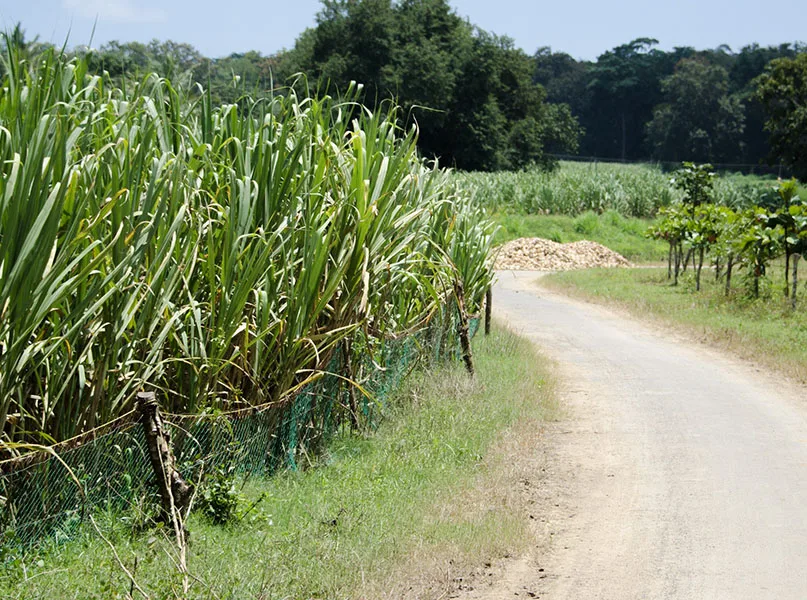
In the context of the global sugar market, how big a role does Africa play? How does a Bonsucro certification enable more farmers from the continent to access international markets?
MO: With 35 out of 54 African countries producing sugarcane, the continent is a major region for the crop.
Advancing responsible practices amongst African producers is vital to our collective journey to transform the sector.
Bonsucro is a voluntary global sustainability platform and standard for sugarcane, with a growing presence in and focus on Africa. Currently, there are 12 Bonsucro members on the continent and two certified mills.
Our certification enables producers to access high-value international markets by meeting global benchmarks for environmental, social, and economic sustainability.
It assures buyers that sugarcane is produced responsibly with controlled use of water and fertiliser, in compliance with greenhouse gas (GHG) and traceability requirements, and particularly without forced or child labour.
Several countries provide clear examples of this pathway:
- Brazil – Bonsucro-certified mills are amongst the top exporters of sugar and ethanol to the EU and Japan. Certification has enabled them to meet the EU’s Renewable Energy Directive (RED) sustainability criteria and secure contracts for sustainable aviation fuel (SAF) and bioethanol.
- Thailand – Certification has helped Thai producers build credibility and traceability in competitive Asian markets, particularly for food-grade and specialty sugars.
- India – Indian mills working with smallholder groups have used Bonsucro certification to access multinational buyers looking for ethically sourced sugar for branded products.
For African producers, this certification not only opens EU and UK markets, where sustainability standards are increasingly enforced, but also makes them eligible for credit trading through the likes of Bonsucro’s Credit Trading Platform.
This allows certified producers to monetise sustainability performance even when physical traceability is difficult.
With environmental, social, and governance (ESG) regulations tightening in the EU and new traceability requirements emerging under the EU Green Deal and CSDDD, certification is becoming not just a benefit but a necessity.
African producers who meet these standards will be best positioned to supply Europe’s regulated sugar markets and biofuel sectors.
Furthermore, international buyers – particularly food and beverage and bio-packaging companies – are increasingly prioritising suppliers that offer transparency and meet science-based targets.
Certification helps African producers to become part of these responsible supply chains and compete on quality, not just price.
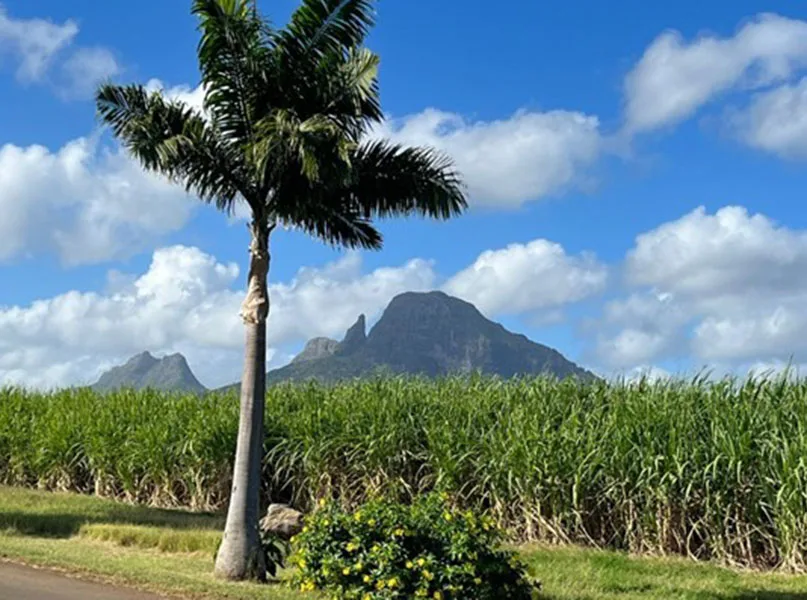
Could you provide an overview of Bonsucro’s Climate Action Toolkit and how it seeks to help African farmers assess climate risks and build resilience?
MO: Bonsucro’s Climate Action Toolkit is a suite of practical tools designed to help sugarcane producers, particularly in vulnerable regions like Africa, to measure, manage, and reduce their GHG emissions whilst preparing for climate impact risks.
The toolkit includes the:
- Bonsucro Calculator – A robust tool that assesses GHG emissions at farm and mill level using sugarcane-specific life cycle analysis.
It also supports compliance with sustainability standards like the EU RED and helps identify areas for efficiency gains. There are 300 data points, of which 82 are used to calculate land management and land use change GHG emissions.
The calculator uses the GHG protocol and components of the Greenhouse Gases, Regulated Emissions, and Energy Use in Technologies (GREET®) lifecycle model to ensure international standardisation. - ClimateCane Tracker – Developed to help companies set science-based GHG reduction targets. It supports producers in estimating emissions from land use, fertiliser application, and processing, and helps align operations with the Paris Agreement targets.
- Soil Carbon Accumulation Tool (under development) – Assesses the carbon sequestration potential of improved land management practices, including no-till farming, straw retention, and organic fertiliser use.
This is particularly relevant for African producers looking to tap into carbon finance or climate funds. This may be included in the calculator in due course. - Climate Resilience Tool (under development) – In partnership with Better Cotton, the Alliance of Bioversity International, and the International Center for Tropical Agriculture (CIAT), this tool supports farmers in conducting climate vulnerability assessments and developing location-specific adaptation plans.
This is particularly important in the African context as many farmers in Africa feel a disproportionate impact of climate change on their production.
By understanding the potential impacts of climate on the physiological and production parameters of the sugarcane crop and production systems, farmers are able to develop adaptation plans with a future climate lens. This can then be used to apply for green funding for their operations.
Together, these tools enable African farmers and mills to future-proof their operations, whether by reducing emissions, improving soil and water health, or qualifying for green climate funding.
Importantly, Bonsucro is working to ensure these tools are accessible, user-friendly, and locally adaptable to the needs of African producers.
How might farmers and producers operating in this space leverage new and emerging technologies to enable more sustainable production?
MO: Farmers and producers in Africa’s sugarcane sector have a growing opportunity to adopt emerging technologies that improve both sustainability and profitability.
Precision agriculture tools such as global positioning system (GPS)-guided planting, soil sensors, and drone-based crop monitoring can help optimise input use, reduce water consumption, and improve yields.
For example, variable-rate fertiliser application reduces run-off whilst lowering costs and smart irrigation systems can ensure efficient water use in drought-prone areas.
Tools like the ClimateCane Tracker and Bonsucro Calculator enable producers to quantify their emissions, identify hotspots, and develop science-based mitigation plans, thereby aligning them with international buyers’ ESG expectations.
Meanwhile, blockchain-based traceability, now being piloted in parts of Asia and Latin America, has the potential to transform transparency in African supply chains – building buyer confidence and facilitating access to premium markets.
On the processing side, bagasse-based cogeneration, bioethanol plants, and bioplastic production from sugar derivatives are all scalable technologies that can help diversify revenue whilst lowering carbon intensity.
Some African mills, such as those in Mauritius, Eswatini, and Sudan, are already exporting excess renewable electricity to national grids – a model others can replicate.
The key to unlocking these opportunities is partnership – producers need support with finance, training, and infrastructure.
As such, Bonsucro is actively working with stakeholders to ensure smallholders and millers alike can benefit from these technologies and not be left behind in the sustainability transition.
Why is it important for producers to set science-based climate targets, such as those offered by the ClimateCane Tracker?
MO: We know that agriculture, including sugarcane cultivation, contributes significantly to GHG emissions, so setting science-based targets allows producers to track their impact and implement strategies to reduce their carbon footprint.
Once the targets are set, it also ensures their practices – like improving soil carbon storage and optimising fertiliser use – support long-term climate stability and responsible use of resources.
Additionally, setting science-based targets means producers can enhance their market competitiveness, meet regulatory requirements, and contribute to a more sustainable bioeconomy.
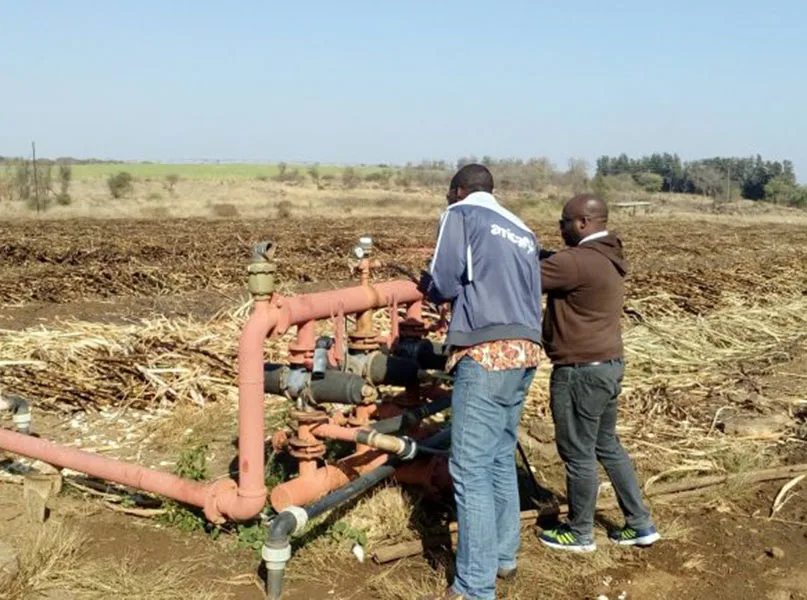
How can more collaborative and resilient partnerships between millers and growers across Africa’s sugarcane communities bring more environmental, social, and economic benefits?
MO: A successful partnership in the sugar industry must be rooted in mutual understanding and respect.
Sugarcane growers and millers rely on each other – growers need mills to crush their cane, whilst mills require a reliable supply to stay operational. This interdependency is critical to growth and success.
When millers consider growers as partners rather than mere suppliers, they foster trust, cooperation, and shared values, leading to more sustainable and resilient supply chains.
These companies go beyond simply paying for cane; they invest in their growers’ success, using non-price mechanisms such as group input purchasing, shared contractor services, and training programmes to help growers become more sustainable and productive.
In my experience, Bonsucro certification can be a powerful catalyst for building and sustaining partnerships, especially amongst smallholder growers.
The certification process takes joint planning, shared commitment, and regular communication between mills and growers.
It aligns values around sustainability and mutual improvement; in doing so, it binds both parties together towards common goals.
As an example, Bonsucro certification requires the development of a climate change adaptation and mitigation plan, which strengthens both growers’ and millers’ resilience against climate impacts.
What did you discuss at the 12th Annual Africa Sugar Conference in Nairobi, Kenya this April, and what insights did you glean?
MO: I presented Bonsucro’s evolving Climate Action Toolkit and discussed how African sugar producers can measure, mitigate, and manage climate risks more effectively.
It was encouraging to see climate resilience take centre stage in a forum that has historically focused on trade and infrastructure.
The audience – comprising producers, millers, investors, and policymakers – was highly engaged, reflecting growing awareness that climate adaptation is now a business imperative.
One of the key insights was the urgency around data and decision-making. Many producers acknowledged the need for robust, farm-level data but raised practical concerns about access to digital tools, technical expertise, and consistent reporting frameworks.
This reinforced the importance of Bonsucro’s role not just as a standards body, but as a partner in building capacity and simplifying complex methodologies into actionable insights.
A particularly challenging and insightful question came from a mill representative who asked how smallholder-heavy operations, which are common across Africa, can afford to participate in carbon markets or sustainability certification when margins are already thin.
It was a valid point that underlined the importance of aggregated models, blended finance, and enabling frameworks to ensure smallholders aren’t excluded from climate finance or premium markets.
Bonsucro will be reviewing its Smallholder Standard this year and we will be looking at this point very carefully.
Another critical takeaway was the role of regulatory frameworks at national level. Whilst international standards like Bonsucro help to provide consistency and access to global markets, their impact is magnified when national policies actively support sustainability goals.
Several participants pointed out that a lack of clarity or coordination between ministries, such as agriculture, energy, trade, and environment, can create roadblocks for producers seeking alignment with climate-smart or export-oriented practices.
Governments need to step in not only as regulators but as enablers, aligning national sugar strategies with climate goals, trade access requirements, and support for certification schemes.
Overall, the conference reaffirmed that the African sugar sector is not lacking in ambition, but to realise it, we need more collaboration across value chains, targeted investment in climate-smart infrastructure, and strong, coherent regulatory frameworks at both national and regional levels.
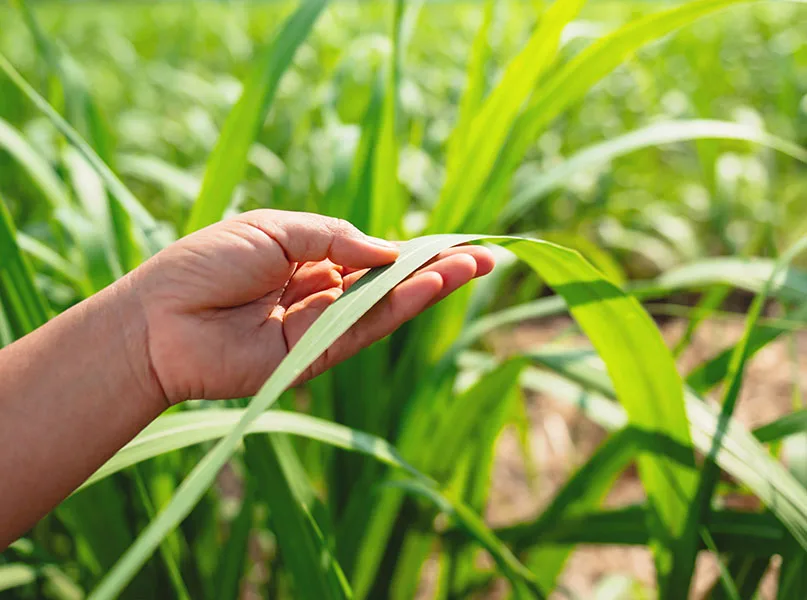
What are your key priorities, targets, and goals for the year ahead to continue creating a sustainable future for farmers, communities, and the planet?
MO: Our key priorities for the year ahead are focused on making sustainability more accessible, impactful, and inclusive, particularly for African sugarcane farmers and mills.
At Bonsucro, we’re doubling down on efforts that translate global sustainability ambitions into practical outcomes for farmers, communities, and ecosystems on the ground.
A major focus is the revision of our Smallholder Standard. We’re working to ensure the updated standard is fit for purpose in the African context, where production systems are often informal, dispersed, and resource- constrained.
The revised standard will aim to reduce barriers to entry, streamline compliance requirements, and introduce tools that better reflect the realities of African smallholders without compromising on sustainability or human rights safeguards.
Alongside this, we’re investing in improved training and guidance materials to support farmers and millers in understanding and applying the Bonsucro Production Standard.
A lot of this is becoming available due to the many successful Bonsucro Impact Fund projects that have been underway for the last few years.
We have created a resource centre of information and tool that is accessible to our members. This includes guidance documents, regional workshop recordings, and the rollout of digital tools to simplify measurement and data collection – especially around water use, labour practices, and climate resilience.
Another priority is to grow our footprint across the continent. We’re actively expanding membership and aiming to increase the number of certified producers and mills, particularly in emerging markets such as Kenya, Tanzania, and countries in West Africa, whilst deepening engagement in established regions like SA, Mauritius, and Eswatini.
Our goal is to ensure more African producers are equipped to meet global market demands for traceability, environmental stewardship, and ethical labour practices.
We also plan to strengthen partnerships with governments, financial institutions, and regional trade bodies, aligning Bonsucro certification with national sustainability goals and helping certified producers gain better access to climate finance, investment, and preferential trade channels.
Ultimately, our mission remains clear – to collectively accelerate the sustainable production and uses of sugarcane, ensuring the environmental, social, and economic benefits are equitably shared.
Whether it’s reducing GHG emissions, improving working conditions, or enhancing biodiversity, Bonsucro will continue to serve as a platform for measurable, scalable impact – anchored in science, driven by collaboration, and grounded in local realities.
Finally, can you talk about Bonsucro’s work on regenerative agriculture?
MO: Bonsucro’s work on regenerative agriculture is an approach that goes beyond sustainability to actively restore ecosystems, enhance soil health, and support resilient farming communities.
We’re currently running a project in partnership with the Sustainable Agriculture Initiative Platform’s ‘Regenerating Together’ framework, which benchmarks practices across four key impact areas – climate, water, soil health, and biodiversity.
Our goal is to potentially align the Bonsucro Production Standard and Calculator with these regenerative principles so sugarcane farmers can be recognised for progressive practices that build long-term resilience and environmental value.
The early results are promising. We’ve found strong alignment between our metrics and regenerative benchmarks, and we’re now exploring how this alignment can help producers transition towards regenerative models in a practical, verifiable, and market-recognised way.
This matters because the future of agriculture, particularly in climate-vulnerable regions like Africa, depends not only on reducing harm, but on restoring soil, regenerating landscapes, and ensuring the long-term viability of farming communities.
Regenerative agriculture offers a compelling path forward, and Bonsucro is committed to ensuring sugarcane producers can be part of this journey with the right tools, standards, and support.
In closing, I’d say that African producers are ready to lead, but they need clear pathways, consistent market signals, and meaningful partnerships.
At Bonsucro, we’re here to help make that possible.


























